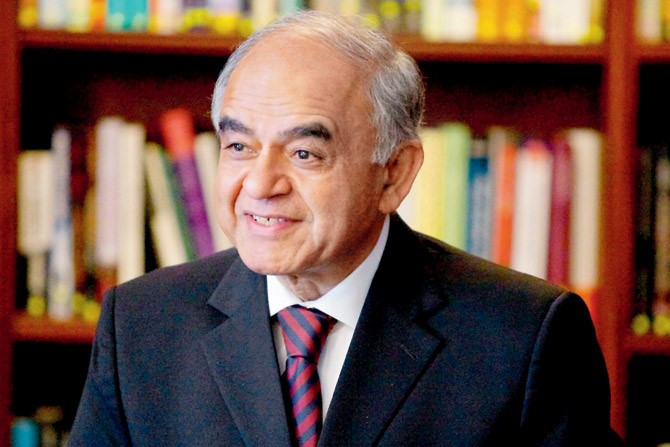
Gurcharan Das was born in Lyallpur, British India (now Faisalabad, Pakistan) in a middle-class family. His father was an engineer with the government of Punjab. The family lived in Lahore at the time of the partition of India in August 1947 when they had to flee for their lives. They arrived as refugees in Shimla, and this is where the young boy grew up.
In 1952, the family moved to Bhakra Nangal; in 1953, to Delhi, where he went to Modern School. In 1955, his father was transferred to Washington DC, to represent India in talks with Pakistan on the sharing of the waters of the rivers of the Punjab, mediated by the World Bank. He went to high school in Washington D.C. In 1959, he won a scholarship to Harvard University. He graduated from Harvard in 1963 with honours in Philosophy, Politics, and Economics.
Instead of accepting a fellowship to do a doctorate in philosophy at the University of Oxford, Gurcharan Das returned home to India. While waiting to decide what he wanted to do with his life, he got a job as a trainee in a company that made Vicks Vaporub. Gurcharan Das rose to become the Managing Director and Chairman of Richardson Hindustan Limited. Before that he spent two summers at Harvard Business School's Advanced Management Program, where he is featured in three case studies. In 1985, his parent company, Richardson Vicks was acquired by Procter and Gamble and he became the first CEO of Procter & Gamble India and Vice-President for Procter & Gamble Far East from 1985 and 1992. He then moved headquarters to become Vice-President and managing director, Procter & Gamble Worldwide, responsible for global strategic planning.
At the end of 1994, after a 30-year career in six countries, he took early retirement to become a full-time writer. India Unbound was the first volume (2002), on artha, 'material well-being', which narrated the story of India's economic rise from Independence to the global information age. Published in many languages and filmed by BBC, it was called "a quiet earthquake" by the Guardian. The second, The Difficulty of Being Good, is on dharma or 'moral well-being', and is "rich with learned musings on the epic, Mahabharata and its moral dilemmas" that speak to our day to day contemporary life. Kama: The Riddle of Desire is on the third goal of desire, and recounts a tale of "love and vulnerability, about self-doubt and betrayal, about wanting more of everything and being haunted by settling for less."
He is a regular columnist for The Times of India and five Indian language newspapers in Hindi, Telugu, Marathi, Tamil, and Gujarati. He also contributes periodically to Financial Times, Foreign Affairs, Wall Street Journal, and the New York Times. Aside from the trilogy, his other literary works include a novel, A Fine Family, two book length essays, India Grows at Nights: A Liberal Case for a Strong State, The Elephant Paradigm, and an anthology, Three English Plays. Please watch a talk by him on the topic ‘Making a living or making a life?’ With Gurcharan Das by clicking on the link below.
